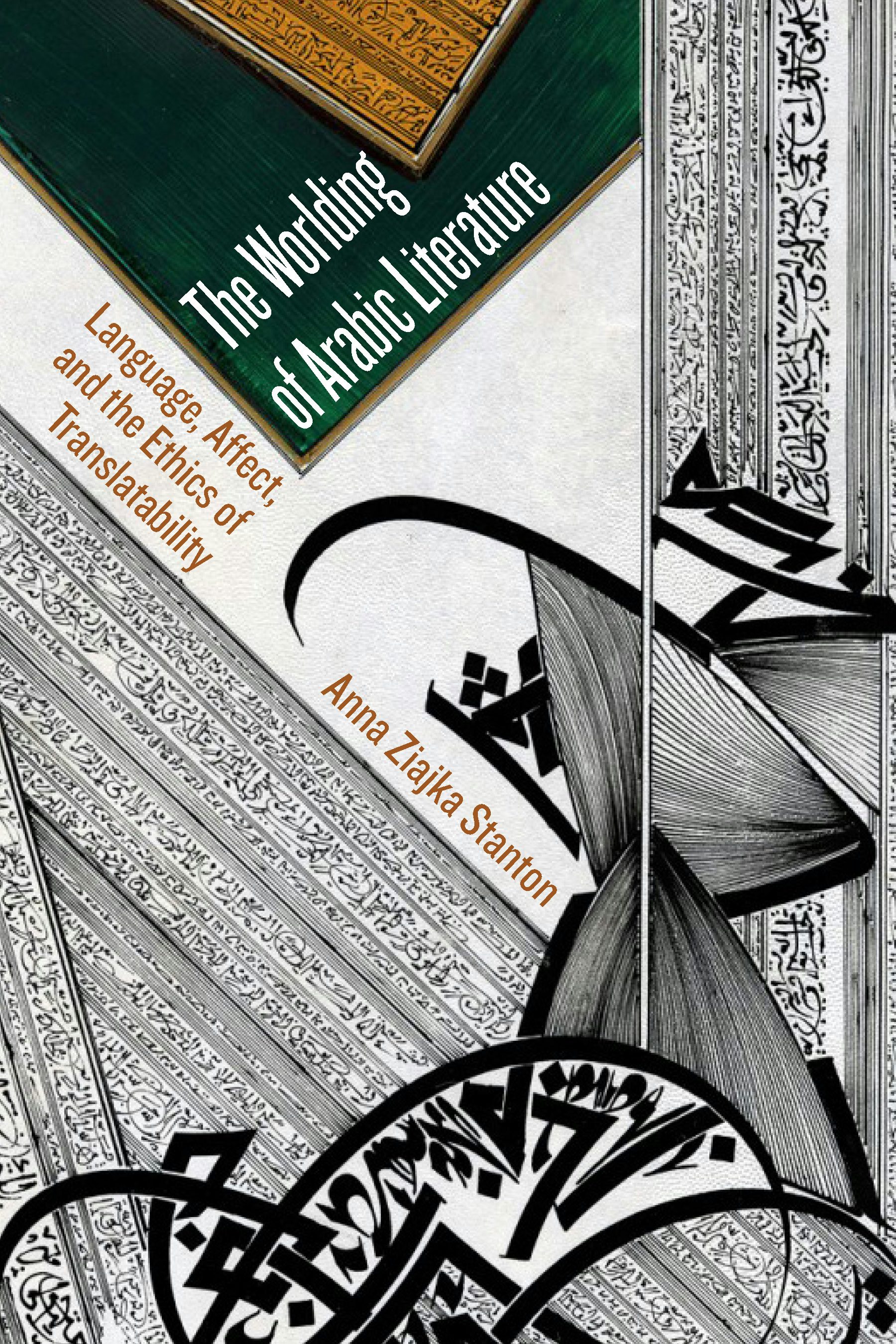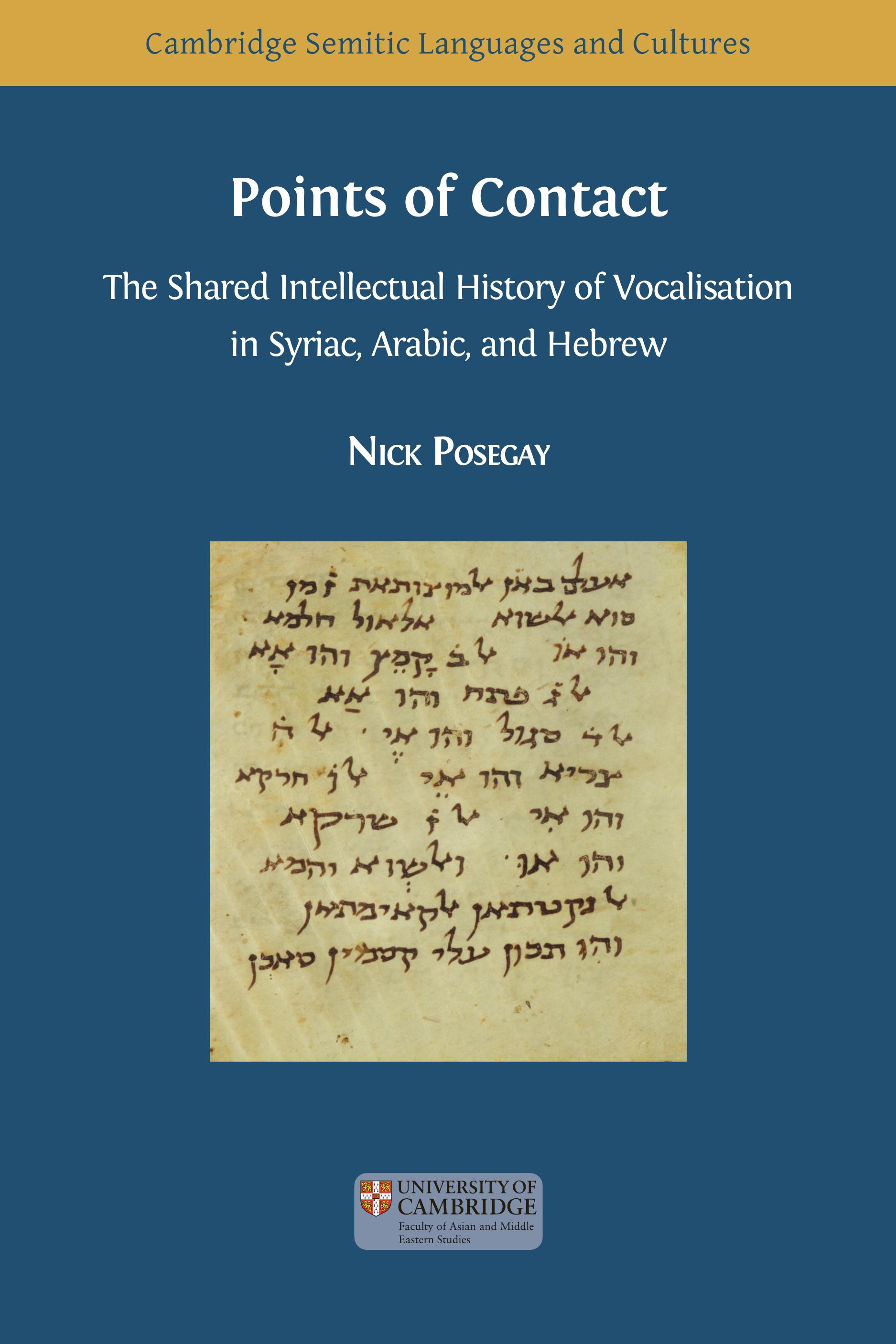In der letzten Zeit sind u.a. diese frei verfügbaren Titel erschienen:
Points of contact: the shared intellectual history of vocalisation in Syriac, Arabic, and Hebrew
Nick Posegay
https://doi.org/10.11647/OBP.0271
In the first few centuries of Islam, Middle Eastern Christians, Muslims, and Jews alike all faced the challenges of preserving their holy texts in the midst of a changing religious landscape. This situation led Syriac, Arabic, and Hebrew scholars to develop new fields of linguistic science in order to better analyse the languages of the Bible and the Qurʾān.
Part of this work dealt with the issue of vocalisation in Semitic scripts, which lacked the letters required to precisely record all the vowels in their languages. Semitic scribes thus developed systems of written vocalisation points to better record vowel sounds, first in Syriac, then soon after in Arabic and Hebrew. These new points opened a new field of linguistic analysis, enabling medieval grammarians to more easily examine vowel phonology and explore the relationships between phonetics and orthography.
Many aspects of this new field of vocalisation crossed the boundaries between religious communities, first with the spread of ‘relative’ vocalisation systems prior to the eighth century, and later with the terminology created to name the discrete vowels of ‘absolute’ vocalisation systems.
This book investigates the theories behind Semitic vocalisation and vowel phonology in the early medieval Middle East, tracing their evolution to identify points of intellectual contact between Syriac, Arabic, and Hebrew linguists before the twelfth century.
The worlding of Arabic literature: language, affect, and the ethics of translatability
Anna Ziajka Stanton
https://www.fordhampress.com/9781531503222/the-worlding-of-arabic-literature/
https://research.library.fordham.edu/literary/1/

Critics have long viewed translating Arabic literature into English as an ethically fraught process of mediating between two wholly incommensurable languages, cultures, and literary traditions. Today, Arabic literature is no longer “embargoed” from Anglophone cultural spaces, as Edward Said once famously claimed that it was. As Arabic literary works are translated into English in ever-greater numbers, what alternative model of translation ethics can account for this literature’s newfound readability in the hegemonic language of the world literary system?
The Worlding of Arabic Literature argues that an ethical translation of a work of Arabic literature is one that transmits the literariness of the source text by engaging new populations of readers via a range of embodied and sensory effects. The book proposes that when translation is conceived of not as an exchange of semantic content but as a process of converting the affective forms of one language into those of another, previously unrecognized modalities of worldliness open up to the source text.
In dialogue with a rich corpus of Arabic aesthetic and linguistic theory as well as contemporary scholarship in affect theory, translation theory, postcolonial theory, and world literature studies, this book offers a timely and provocative investigation of how an important literary tradition enters the world literary system.
Reihe „Semitic Languages and Cultures“
https://www.openbookpublishers.com/series/2632–6914
This series includes philological and linguistic studies of Semitic languages, editions of Semitic texts and works relating to the cultures of Semitic-speaking peoples.


